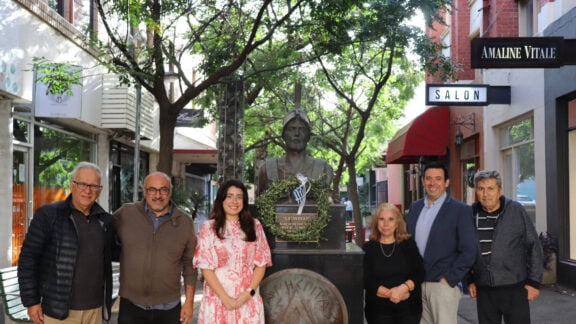Members of the Ethnic Communities Council of Victoria’s Multicultural Youth Advocacy Group recently delivered a presentation to VicHealth staff, focusing on the lived experiences of multicultural youth and the mental health challenges they face.
The session emphasised the need for culturally sensitive mental health care and support tailored to young people from migrant and refugee backgrounds.
The presentation shed light on the unique struggles these youth encounter, such as discrimination, social isolation, and the complexities of balancing multiple cultural identities.
It was presented that these factors contribute to significant mental health disparities within migrant and refugee populations, which often remain unaddressed in conventional healthcare systems.
Research presented indicated the magnitude of the issue. Multicultural youth, particularly those from refugee backgrounds, often endure psychological conditions like PTSD, anxiety, and depression due to the trauma of fleeing war, conflict, or persecution.
In Australia, studies show that 30 per cent of resettled refugees are diagnosed with PTSD, while 15 per cent suffer from severe mental illnesses.

The statistics highlight the severe psychological toll of migration stress and the difficulties of adjusting to a new country.
Daily encounters with both direct and indirect racism further exacerbate these mental health challenges.
Research from Orygen reveals that chronic racial discrimination has a profound impact on mental health.
The stress of being excluded from educational and social settings can worsen mental health outcomes, while systemic racism limits access to essential resources such as education, employment, and housing, perpetuating health disparities across generations.

Another major barrier is the low level of mental health literacy within many migrant and refugee communities. Mental illness is often stigmatised and viewed through a cultural lens of shame, leading to underreporting and reluctance to seek help.
In many cases, the pressure to uphold a positive public image discourages open discussions about mental health, leaving many individuals without the support they need. This avoidance only heightens the risk of untreated mental health conditions, including suicide.
Addressing these challenges requires targeted efforts to reduce stigma and improve mental health literacy in multicultural communities. Providing culturally sensitive and accessible mental health services is crucial to encouraging individuals to seek help. Systemic racism must also be tackled as a public health issue, given its significant impact on mental health outcomes. By addressing these barriers, we can create more inclusive environments that support the mental well-being of migrant and refugee youth.








